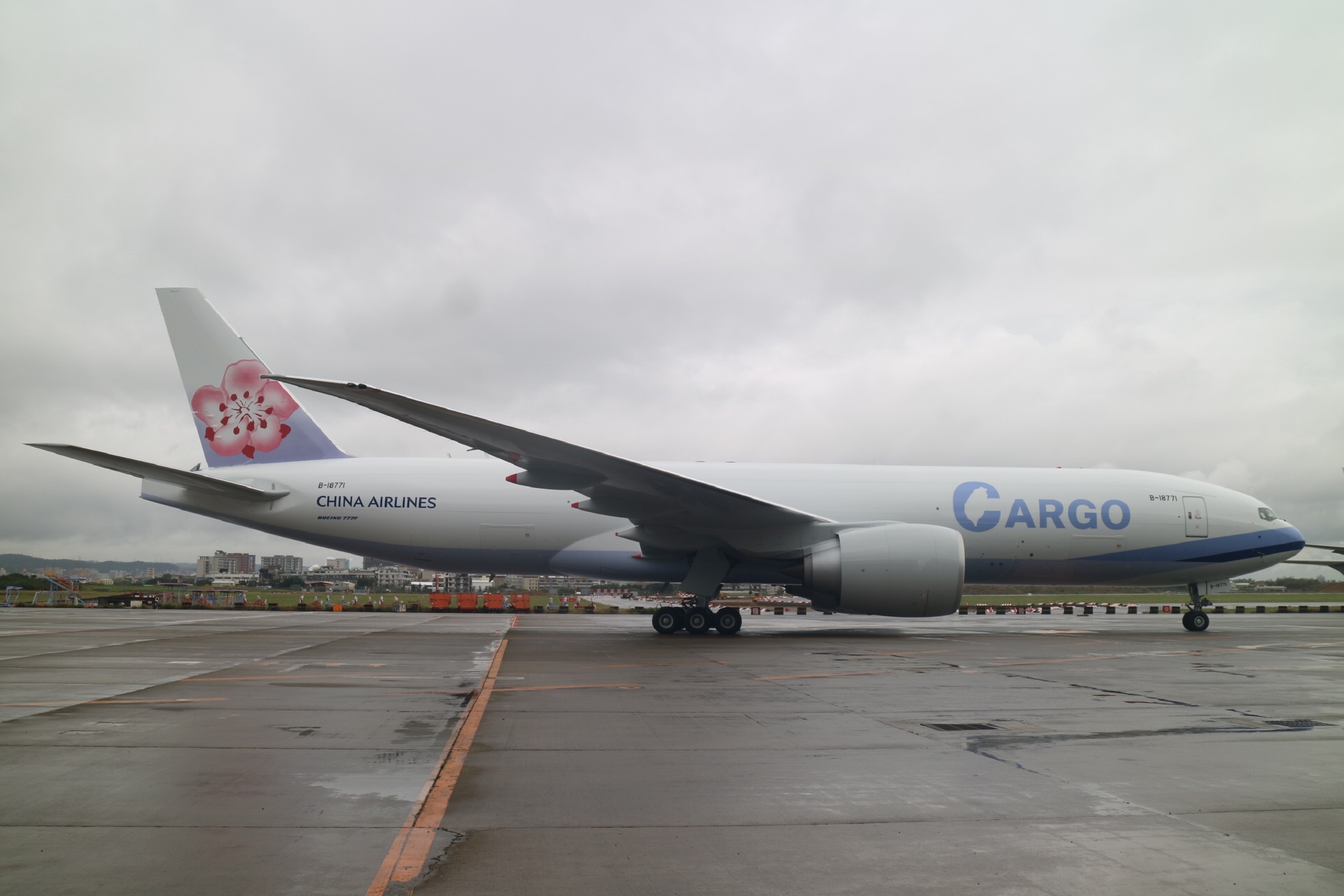China Airlines has unveiled the first of six Boeing 777 Freighters, officially becoming the 20th operator of the world’s largest and longest range twin-aisle freighter. The 777 Freighter joins the airline amid growing demand for dedicated freighters as operators grapple with the impacts from the COVID-19 pandemic.
“Air cargo demand has risen in light of the global pandemic and has played a critical role in maintaining profitability for our airline despite the downturn in passenger traffic,” said China Airlines Chairman Hsieh Su-Chien. “The efficiency and capability of the 777 Freighter enables us to modernize our freighter fleet, while also allowing us to increase capacity and open into new markets. We look forward to delivering world-class service to our customers.”
China Airlines aims to increase its cargo capacity by 15% in 2021 and is planning to launch the 777 Freighter on routes connecting Taipei with North America. An operator of all-Boeing freighter fleet, China Airlines debuted its new 777 Freighter during a ceremony in Taipei to mark the carrier’s 61st anniversary. The airline is set to take five more 777 Freighters as part of an order announced at the 2019 Paris Air Show.
“With the global air cargo fleet expected to grow by more than 60% over the next 20 years, the unmatched efficiency of the 777 Freighter will significantly boost China Airlines’ air cargo capabilities and enable them to scale their world-class cargo operations,” said Ihssane Mounir, senior vice president of Commercial Sales and Marketing for Boeing. “We are honored to strengthen our partnership with China Airlines as they continue to build one of the world’s most dynamic freighter fleets.”
In addition to commercial airplanes, Boeing provides China Airlines with total life cycle support services to streamline parts provisioning and flight and maintenance operations. The entire China Airlines fleet uses Jeppesen FliteDeck Pro, which provides access to digital navigation charts and interactive maps to optimize performance and enhance situational awareness.
China Airlines also recently signed an agreement for Airplane Health Management (AHM), which tracks real-time airplane information, providing data and decision support tools that allow technicians to quickly and correctly resolve maintenance issues. This allows airlines to take proactive actions based on AHM-generated alerts, reducing disruptions to operations and the costs associated with unscheduled maintenance.

